Here's how to make really good, super-flavorful, super-versatile homemade chicken stock in the Instant Pot or on the stovetop.
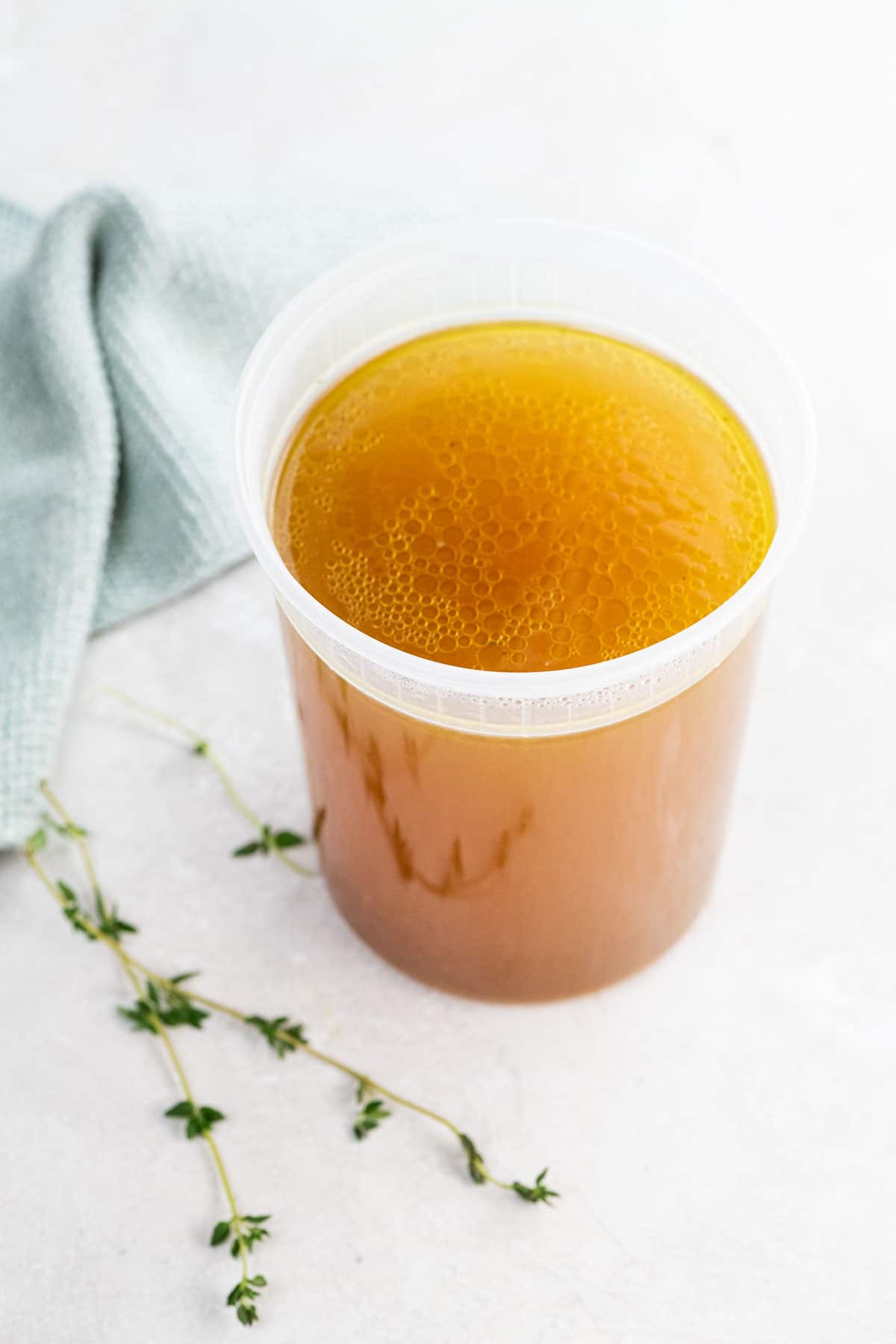
Why we love this recipe
This chicken stock recipe uses a combination of chicken carcasses (which, yeah, I hear it), lots of aromatics, and either pressure cooking or a nice long stovetop cooking time to create a rich, flavorful, versatile result. It's perfect for any recipe that calls for chicken broth or stock. It's:
- Full of nuanced, balanced flavor
- Perfect the way it is, but also highly amenable to the contents of your fridge and freezer
- A great way to reduce food waste
I first published this recipe back in 2010. I've since updated the post for clarity and made a few changes to the recipe itself to reflect the way I make stock now.
What you'll need
Here's a glance at the ingredients you'll need to make chicken stock in the Instant Pot or on the stovetop.
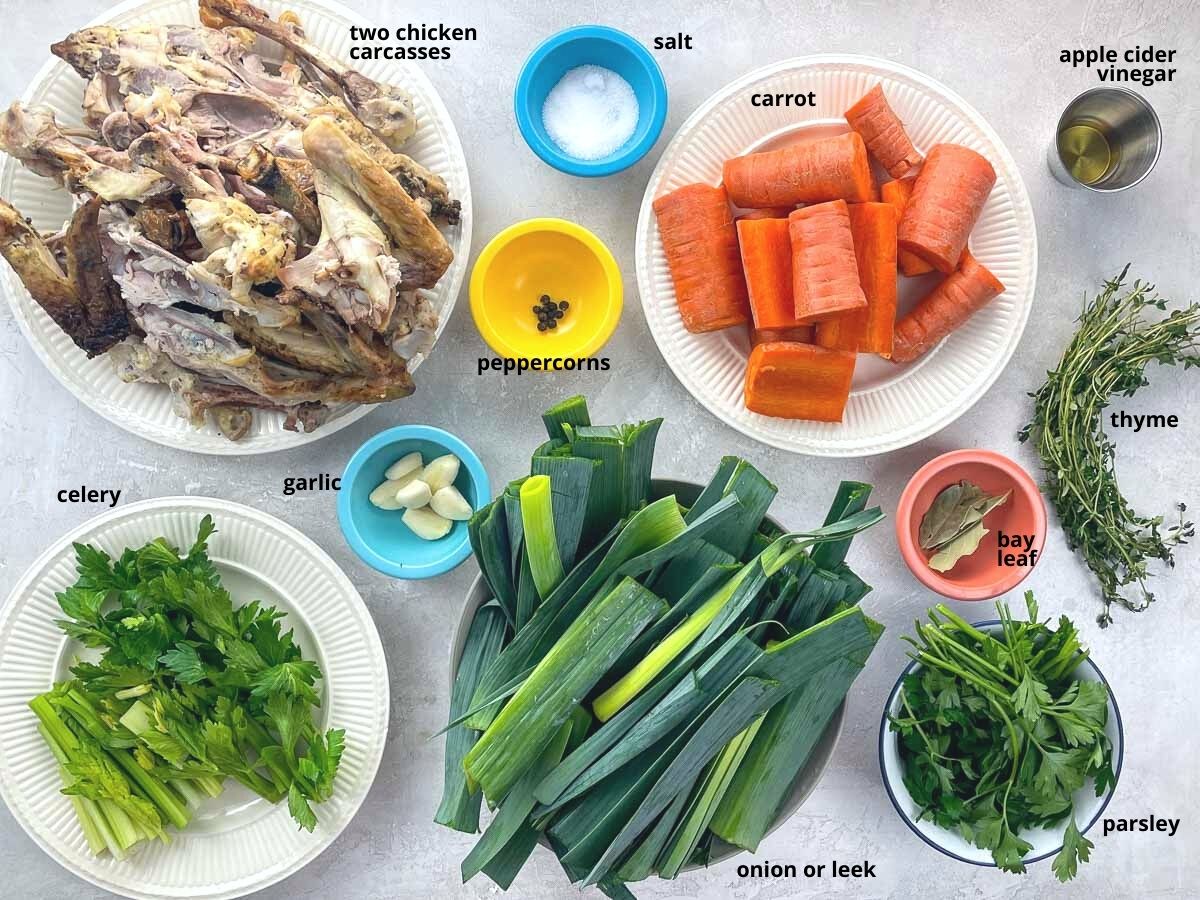
- This recipe starts with the bones from two roasted chickens. My favorite roast chicken recipes are here, here, and here. If you're not roasting two chickens at a time, pop the remains of the first one into a zip-top bag and keep it in the freezer.
- You can use onion or the dark green parts of the leek that you'd otherwise discard. Leek tops are another great ingredient to collect in the freezer until you're ready to make stock.
- The tender inner ribs of celery, with their leaves attached, make great stock ingredients.
- Apple cider vinegar is optional, but using a tiny bit helps draw the nutrients from the bones and into the stock. You won't taste it.
My favorite sources for meat & pantry staples
For years, I've been sourcing our meat from ButcherBox. We love this curated meat delivery service, which provides grass-finished beef, heritage breed pork, organic chicken, and more from small farms direct to the customer. You can learn more in my extensive Butcher Box review and unboxing.
I love Thrive Market for a wide variety of products. Often described as one part Whole Foods, one part Costco, they're a membership-based online market for healthier products at discounted prices. Plus, they're mission-driven, engaged in the community, and not currently owned by a giant corporation. You can learn more in my Thrive Market review and unboxing.
How to make it
Here's an overview of what you'll do to make chicken stock in the Instant Pot or on the stovetop. You can see the steps in action in the video that accompanies this post, and get all the details in the recipe card below.
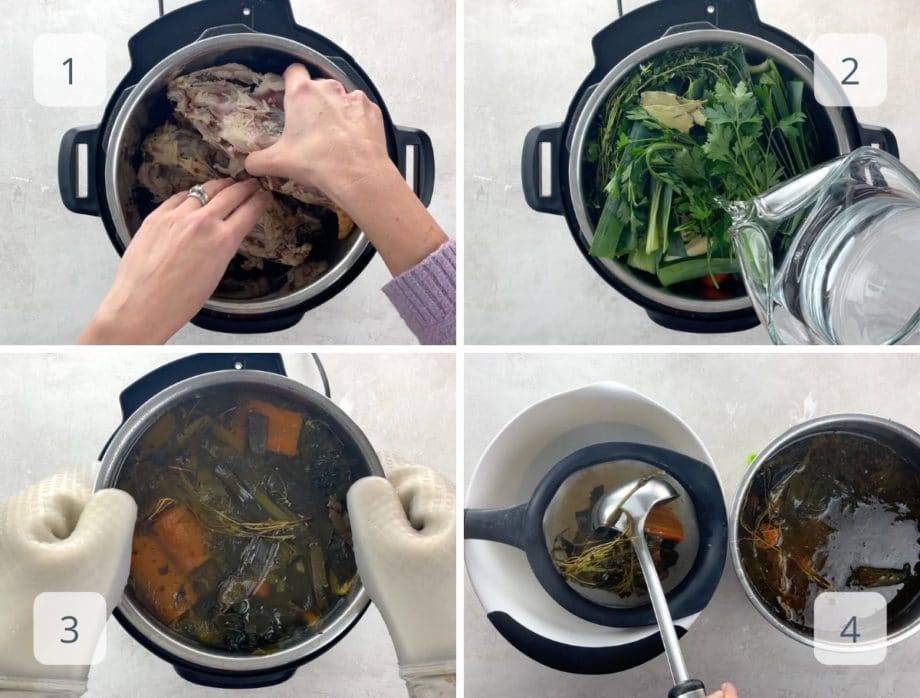
- In a large stockpot or a 6- or 8-quart Instant Pot, arrange the chicken bones. In an IP, where space is limited, you can break them up a bit.
- Add the remaining solid ingredients and then pour in water. In the IP, fill to the max fill line or a tiny bit below. Take this seriously — the pot won't pressurize properly if there isn't enough headspace. In a stock pot, add up to seven quarts of water.
- In the IP, cook for 120 minutes on high pressure, then let the pressure release naturally. If using a stock pot, bring to a boil, then reduce to a simmer. For the first hour, periodically skim any foam off the top of the pot. Simmer, uncovered, for at least four hours, until liquid has reduced by about half.
- After cooking, let stock cool to a comfortable handling temperature and then strain through a fine-mesh sieve, lined with cheesecloth if you like.
Expert tips and FAQs
Yes, this is Instant Pot chicken bone broth, if that's what you prefer to call it. Using two whole carcasses from great-quality chickens, cooking for a long time, and adding a bit of apple cider vinegar creates bone broth that reliably gels when chilled and has all the nutritive properties that enthusiasts are looking for. The nomenclature comes down to whether you're approaching things from a culinary or diet/lifestyle perspective.
I like to salt my chicken stock from the get-go, but lots of people omit salt from the stock itself and only flavor the eventual soup or other final recipe. It's up to you to decide what you prefer.
It's up to you whether you want to use the stock with the fat still in it or skim it off. If you choose to skim, simply let the stock chill in the fridge overnight. A layer of fat will rise to the top and solidify. At that point you can lift it right off and discard it or save it to use as a cooking fat.
Lots of chicken stock recipes will tell you to discard all the solids after you strain the stock, but I find that even after a long cooking time, the vegetables and any bits of meat that have clung to the bones are tender and delicious to eat.
If you like, you can run the carrot, celery, garlic, and onion (but not leek tops) through a food mill or give them a quick whir in the food processor and sprinkle with some good parmesan cheese to make a rustic vegetable puree. Eat it on its own or stir into a little bit of the stock to make a simple soup.
Yes, for sure. Stock keeps in an airtight container in the fridge for a week and in the freezer for a year.
How to use it
The simpler the recipe, the more it benefits from beautiful homemade chicken stock. This stock works well in any recipe that calls for chicken broth, but here are a few of our favorite places to use it:
- Stracciatella alla Romana
- Avgolemono soup (pictured below)
- Potage aux legumes
- Creamy roast pumpkin and sage risotto

Hungry for more?
Subscribe to Umami Girl's email updates, and follow along on Instagram.
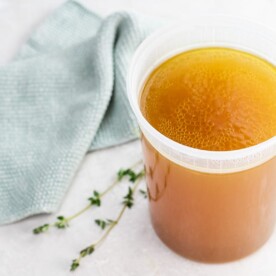
Really Good Chicken Stock (Instant Pot or Stovetop)
Ingredients
- 2 carcasses from whole roasted chickens
- 2 large carrots
- 4 inner celery ribs
- 1 large yellow onion or the dark green tops of 2 leeks
- 4 garlic cloves (peeled and smashed)
- 10 sprigs thyme
- A handful fresh Italian parsley (including stems)
- 2 bay leaves
- 10 black peppercorns
- 1 tablespoon fine sea salt (optional)
- 1 tablespoon (15 ml) apple cider vinegar (optional)
Instructions
- Place all ingredients in a large stockpot or a 6- or 8-quart Instant Pot. In the IP, to save space, you can break up the chicken carcasses a bit. This should be easy to do with your hands. For all pots, wash the carrots, celery, and onions or leek tops and cut into large chunks. There is no need to peel.
- In an IP, add water to the max fill line. (Take this limit seriously, making sure that all solid and liquid ingredients rest at or below the line, otherwise the pot won't pressurize correctly.) In a stock pot, add 8 quarts water.
- Instant Pot instructions: Postition lid and set vent to sealing. Cook on manual, high pressure, for 120 minutes. (It's faster to press the down arrow, since the counter will wrap back around to 120 after it hits zero.) Pot will take quite a while to come up to pressure before the countdown begins. When cooking time ends, let pressure release naturally.
- Stovetop instructions: Bring to a boil over high heat, then reduce heat and simmer gently, uncovered, for 4 hours, stopping by from time to time during the first hour of cooking to skim off and discard any foam that collects at the top of the pot.
- After cooking, let stock cool to a comfortable handling temperature
- Strain through a fine-mesh sieve, lined with cheesecloth if you like, into a very large bowl.
- Pour into storage containers and chill. Stock is ready to use in recipes.
Notes
- It's up to you whether you want to use the stock with the fat still in it or skim it off. If you choose to skim, simply let the stock chill in the fridge overnight. A layer of fat will rise to the top and solidify. At that point you can lift it right off and discard it or save it to use as a cooking fat.
- Lots of chicken stock recipes will tell you to discard all the solids after you strain the stock, but I find that even after a long cooking time, the vegetables and any bits of meat that have clung to the bones are tender and delicious to eat.
- If you like, you can run the carrot, celery, garlic, and onion (but not leek tops) through a food mill or give them a quick whir in the food processor and sprinkle with some good parmesan cheese to make a rustic vegetable puree. Eat it on its own or stir into a little bit of the stock to make a simple soup.
- Stock keeps in an airtight container in the fridge for a week and in the freezer for a year.
Nutrition
Hungry for more?
Subscribe to Umami Girl's email updates, and follow along on Instagram.



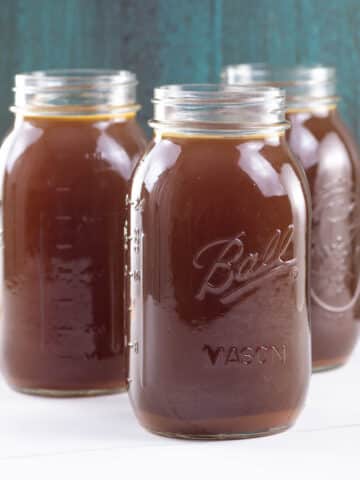
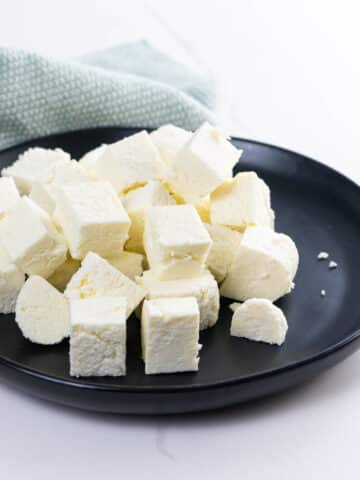



Anonymous says
Anonymous says
Roger says
Ooh, I'm having this dilemma at the moment. Not a fan of discarding anything edible.
Susan says
I don't discard the solids when I make stock! I put them in my blender and puree them and add them to the soup I am making from the stock!
Home with Mandy says
I like the way you think...
Anna Muggiati says
I couldn't resist to come here after receiving the newsletter/email because of its charming appeal. I also mostly reject to discard the solids and I always feel good when I find someone who appreciates the transformation solution. Thanks, again, Carolyn. I am currently obsessed with using "to be discarded carrots peels " for a jam... Any ideas?
Diana says
Yeah, skimming off the fat from chicken stock is silly talk... if it's a quality pastured bird you're eating, the fat is literally the best part, full of nutrients! Anyways... thanks for giving me the nudge to follow my instincts and eat the carrots, onions and celery after making my stock! Feels so wrong, tastes so right!
Jenious says
I'm liking the looks of the lunch "above" and plan to give it a go when I make stock later this week.
Koek! says
Can't tell you how delighted I am to have discovered your blog... Love your writing - looking forward to trawling through your recipes.
Robyn
Dianne Jacob says
Hey, that was me who made that withering comment. Thanks for the link.